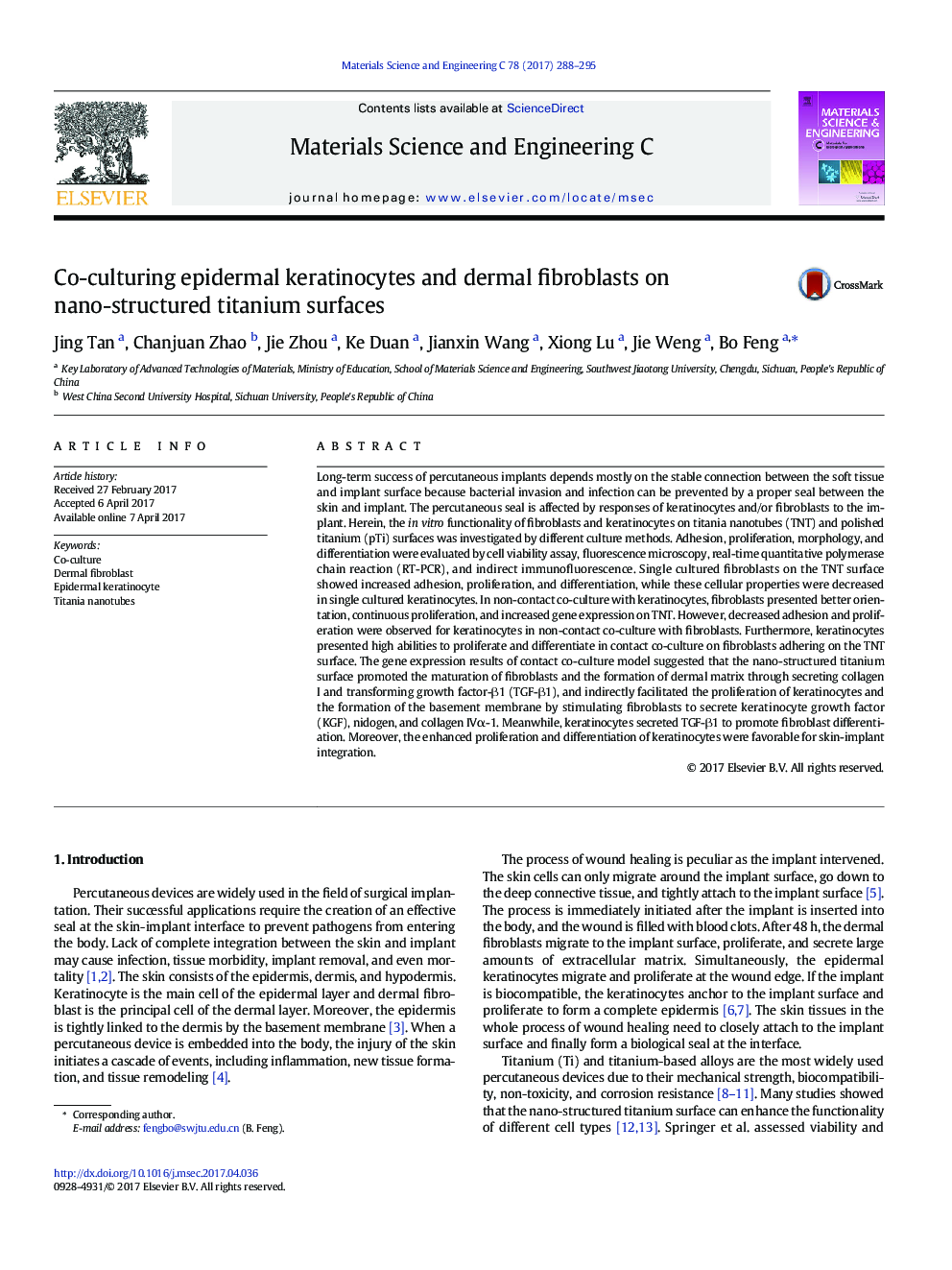| Article ID | Journal | Published Year | Pages | File Type |
|---|---|---|---|---|
| 5434416 | Materials Science and Engineering: C | 2017 | 8 Pages |
â¢The nano-structured titanium surface was beneficial to fibroblasts in single culture and non-contact co-culture.â¢The nano-structured titanium surface was unsatisfactory for keratinocytes in single culture and non-contact co-culture.â¢The nano-structured titanium surface facilitated the keratinocyte-fibroblast interaction in contact culture.
Long-term success of percutaneous implants depends mostly on the stable connection between the soft tissue and implant surface because bacterial invasion and infection can be prevented by a proper seal between the skin and implant. The percutaneous seal is affected by responses of keratinocytes and/or fibroblasts to the implant. Herein, the in vitro functionality of fibroblasts and keratinocytes on titania nanotubes (TNT) and polished titanium (pTi) surfaces was investigated by different culture methods. Adhesion, proliferation, morphology, and differentiation were evaluated by cell viability assay, fluorescence microscopy, real-time quantitative polymerase chain reaction (RT-PCR), and indirect immunofluorescence. Single cultured fibroblasts on the TNT surface showed increased adhesion, proliferation, and differentiation, while these cellular properties were decreased in single cultured keratinocytes. In non-contact co-culture with keratinocytes, fibroblasts presented better orientation, continuous proliferation, and increased gene expression on TNT. However, decreased adhesion and proliferation were observed for keratinocytes in non-contact co-culture with fibroblasts. Furthermore, keratinocytes presented high abilities to proliferate and differentiate in contact co-culture on fibroblasts adhering on the TNT surface. The gene expression results of contact co-culture model suggested that the nano-structured titanium surface promoted the maturation of fibroblasts and the formation of dermal matrix through secreting collagen I and transforming growth factor-β1 (TGF-β1), and indirectly facilitated the proliferation of keratinocytes and the formation of the basement membrane by stimulating fibroblasts to secrete keratinocyte growth factor (KGF), nidogen, and collagen IVα-1. Meanwhile, keratinocytes secreted TGF-β1 to promote fibroblast differentiation. Moreover, the enhanced proliferation and differentiation of keratinocytes were favorable for skin-implant integration.
